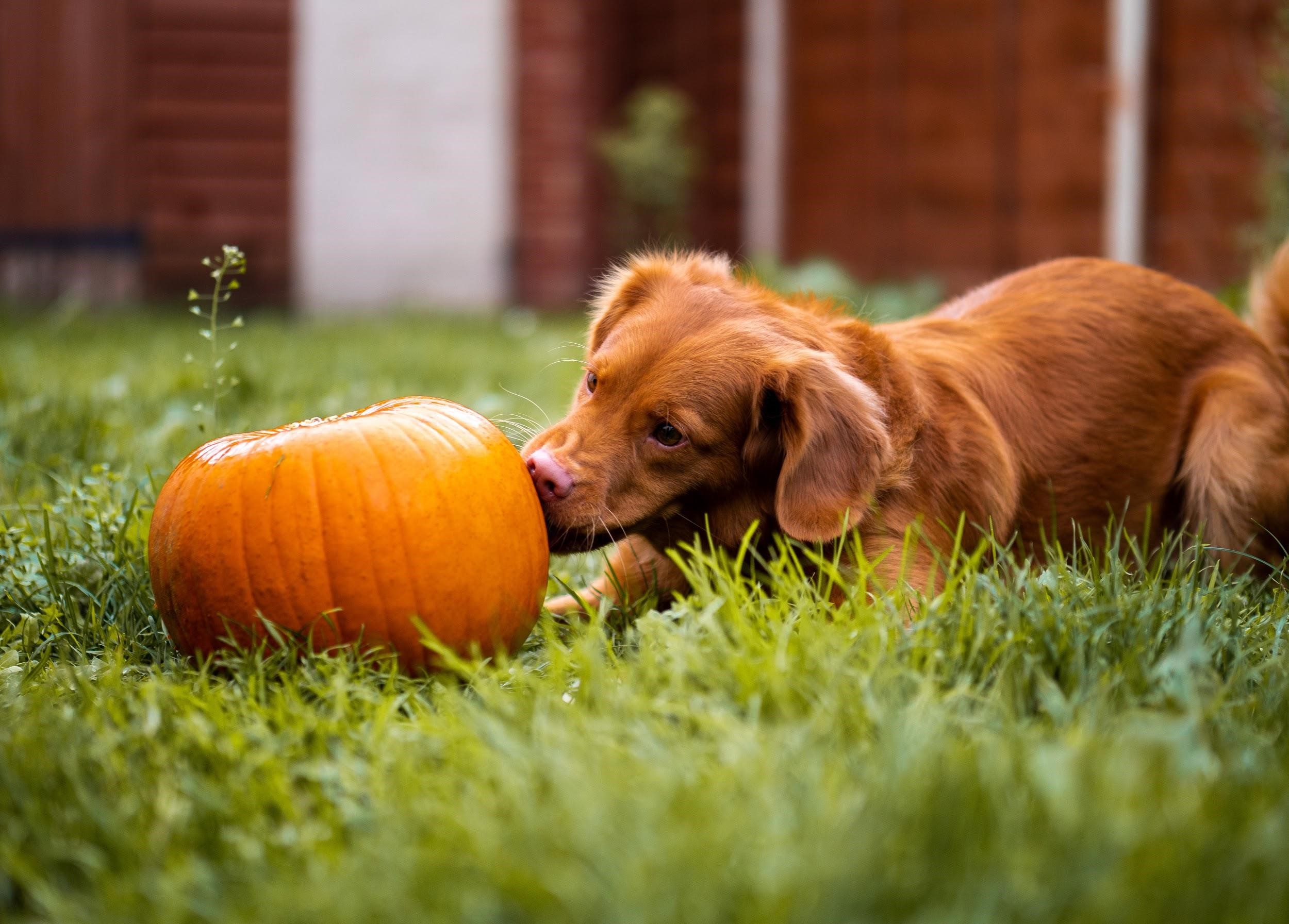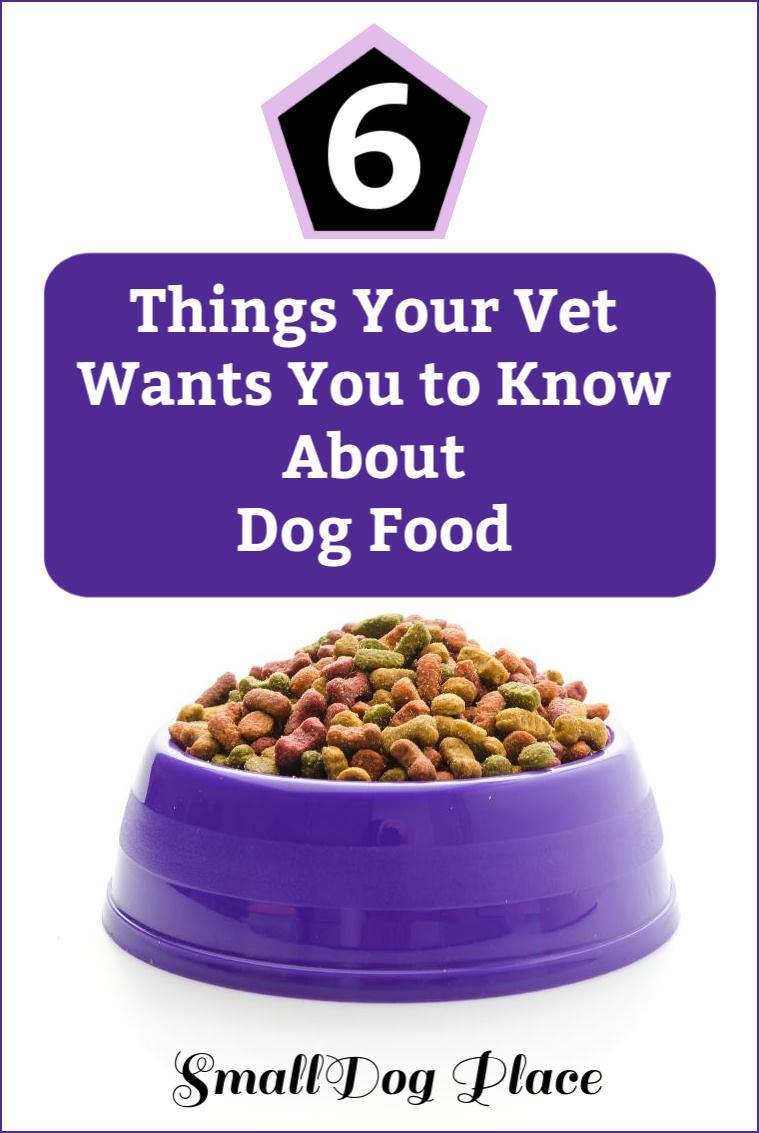6 Things Your Vet Wants You to Know About Dog Food
About Dog Food By Emily Williams |Published July 29, 2019
When it comes to food, most dogs will eat just about anything. As opportunistic eaters, it’s in their nature! But being willing and able to eat almost anything isn’t the same as getting great nutrition. As our dogs’ guardians, it’s up to us to feed them well. Here are six tips for feeding your dog correctly.
 6 Things Your Vet Wants You to Know About Dog Food
6 Things Your Vet Wants You to Know About Dog FoodAbout Dog Food
1. Grains and Byproducts are OK for Most Dogs
When wild dogs eat, they consume entire animals – including things that we humans view as absolutely disgusting.
As it turns out, things like sinews and organs are highly nutritious, with essential minerals and vitamins, plus healthy fat and protein, so there’s no need to worry too much about ingredients like chicken meal and lamb meal, which are made by grinding up animal protein and removing moisture.
Do consider choosing dog foods with named protein sources such as beef, chicken, duck, lamb, etc. over more general “poultry” or “meat byproduct” catch-all labels.
Switching to a brand with named proteins and fewer fillers can make a visible difference. In many cases, the recommended serving size is smaller. And you’ll find that your dog’s waste output is lower as well.
Whole grains such as rice, barley, and oats are fine for most dogs too. If you think that your dog might have a food allergy, ask your vet to run tests.
2. Not all Dog Foods are Created Equal
Even though the FDA regulates all pet foods sold in the US, there are differences in quality. You’ll want to look for the Association of American Feed Control Officials (AAFCO) label mentioning that the dog food provides complete and balanced nutrition, plus you’ll want to watch out for things like artificial colors and artificial flavors.
Be on the lookout for the term “animal byproduct” since these generic meat, bone, and animal byproduct meals can also contain things like diseased or dead on arrival livestock, roadkill, deceased zoo animals, and even pets that have been euthanized at animal shelters.
What is in generic meat and animal byproduct meals depends on the rendering plant that processes the meals. Brands that use this vague terminology technically meet the standards set forth by AAFCO, but they could be detrimental to your dog’s health.
Before choosing a dog food, take a look at the company's website. Does it provide detailed information about the food, the company, recalls? Or do you see fancy marketing, beautiful images, and wonderful promises that are not backed up by facts?
3. Dry Dog Food Helps Keep Your Pet’s Teeth Clean
In the wild, carnivorous animals keep their teeth clean by eating bones. Unfortunately, real bones can splinter and break, potentially harming your dog’s digestive tract.
Bones can damage your dog’s teeth, too, leading to pain and perhaps some unexpected vet bills. A good-quality dry dog food does double-duty by nourishing your pet and helping keep dog teeth cleaner between dental cleanings.
Of course, dental chews are great for keeping our furry friends’ teeth clean, too. Bonus: fresher doggie breath and more enjoyable interactions with your pet!
It’s perfectly fine to treat your dog to wet food as well as kibble. If your dog needs to lose weight, replacing part of your dog’s dry food with wet food can help you keep them feeling satisfied, but with fewer calories.
4. All Dogs Don’t Need a Premium Diet
Did you know that the average dog owner will spend approximately $1,975 on their dogs, from travel costs to insurance, food, and treats?
While you probably don’t want to feed your dog the cheapest food on the market, many foods offered at mid-range prices are nutritionally sound and perfectly healthy. Of course if budget isn’t an issue, feel free to treat your dog to the very best. It certainly won’t hurt.
Take a peek at the dog reviews on PupJunkies to see some interesting comparisons and learn more about which foods are best for your dog.
Pet food manufacturing is a competitive business. You do want to feed your dog a good quality food, but you don’t have to pay premium prices as some manufacturers would lead you to believe.
5. Dogs Aren’t Obligate Carnivores
While cats can’t survive without meat, dogs can live long, healthy lives on vegetarian diets. If you’re a vegetarian or vegan and you’d like your dog to join you, be sure to talk to your vet about how to make the switch since it’s essential to provide the right nutritional balance.
An excellent vegetarian dog food will contain enough protein, balanced amino acids, and an appropriate blend of vitamins and minerals designed to support your dog’s health.
If you decide to feed a vegetarian or vegan dog food, it’s an excellent idea to treat your pet to twice-yearly checkups to ensure that they are healthy.
6. Portion Control Matters
Many of us are watching our waistlines, and it’s up to us to keep track of our dogs’ intake, too! In case portion control feels difficult or you feel like your dog is missing out, some companies are offering portion-controlled meals based on your dog’s size.
Whatever you feed your dog, be sure to check recommended serving size based on your pet’s age, activity level, and ideal weight.
If you’re not sure, your vet can help you decide how much to feed your pet. Take treats into consideration too – this is particularly important if you have a small dog since extra calories add up quickly and even a little bit of excess weight can be hard on your dog’s joints.
Final thoughts about dog food...
Ultimately, the right diet can make a significant impact on your dog’s health, happiness, and longevity. It’s up to you to decide on the best dog food for your pet: One that meets your dog’s nutritional needs as well as your budget.
And, speaking of the health of your little dog, you can always check out Fuzzy Rescue for important points to keep in mind when purchasing health insurance. Yes, even dogs need health insurance to help you stay within your budget while assuring your dog stays healthy.
Author Bio (About Dog Food)
Emma is a pet-parent to two four-legged friends, and enjoys sharing her knowledge on animal behaviour, health and training. When she has spare time, she enjoys blogging for wwwallaboutcats.com.
More About Janice (author and voice behind this site)
Janice Jones has lived with dogs and cats for most of her life and worked as a veterinary technician for over a decade.
She has also been a small-breed dog breeder and rescue advocate and holds academic degrees in psychology, biology, nursing, and mental health counseling.
Her work focuses on helping dog owners make informed, responsible decisions rooted in experience, education, and compassion.
When not writing, reading, or researching dog-related topics, she likes to spend time with her six Shih Tzu dogs, her husband, and her family, as well as knitting and crocheting.
She is also the voice behind Miracle Shih Tzu and Smart-Knit-Crocheting

Free Monthly Newsletter
Sign Up for Our Free Newsletter and get our Free Gift to You.
my E-book, The Top 10 Mistakes People Make When Choosing a Dog (and how to avoid them)





